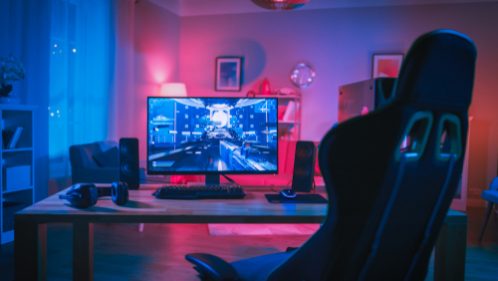
By: Alex Petros (Public Knowledge)
Virtual bullets and explosions dance across the screen, yet I’m far more focused on what’s coming in through my Playstation headset. Two of my best friends live across the country, yet we stay in touch through the team-based online shooter game Overwatch. Bemoaning the substandard play of our competitors (and occasionally other teammates) is interspersed with discussions of our families, professional lives, and significant others. It almost feels as if we are back in the college dorm room where we met a decade ago, instead of three time zones apart.
Our online gatherings, and many others like it, are now in jeopardy. You see, Overwatch is made by Activision Blizzard and the three of us play on Sony’s Playstation console. Microsoft, Sony’s chief gaming rival, has announced it will be acquiring Activision Blizzard for a whopping $68.7 billion. The deal merits rigorous scrutiny by antitrust enforcers.
Defining the Market
“Video games” can be a nebulous market, and strategic companies are more than capable of stretching the market definition to make themselves seem unthreatening to the watchful eye of antitrust scrutiny. For example, mobile games have skyrocketed in popularity and while there is some overlap, few believe a phone to be a viable substitute for a video game console today. A technically demanding game like Overwatch can’t be played competitively on a mobile device. In addition, mobile game controls lack the precision of console controllers and as of now developers exclusively make blockbuster games for consoles, with few exceptions. Mobile games also mostly operate with a different business model — free-to-play, with monetization driven by advertising and subsequent purchases of in-game currency or premium features. Enforcers will need to determine whether mobile games are part of the market or not (they’re probably not).
Video gaming is dominated by three companies (Nintendo, Sony, and Microsoft) across four platforms (Sony’s Playstation 5, Nintendo’s Switch, and Microsoft’s Xbox consoles and PCs). Today’s consoles are more than just some fancy computer hardware and a disc drive. They come with apps, a virtual storefront, and premium services enabling online play and cloud-based gaming. These combine to form an entire ecosystem with multiple ways to monetize consumers.
Of the three major companies, Nintendo is an aberrant player. The Switch lacks the processing power of the other consoles and is focused on exclusive games (Zelda, Mario, etc.) and other metrics like mobility that Sony and Microsoft mostly eschew…
Featured News
Belgian Authorities Detain Multiple Individuals Over Alleged Huawei Bribery in EU Parliament
Mar 13, 2025 by
CPI
Grubhub’s Antitrust Case to Proceed in Federal Court, Second Circuit Rules
Mar 13, 2025 by
CPI
Pharma Giants Mallinckrodt and Endo to Merge in Multi-Billion-Dollar Deal
Mar 13, 2025 by
CPI
FTC Targets Meta’s Market Power, Calls Zuckerberg to Testify
Mar 13, 2025 by
CPI
French Watchdog Approves Carrefour’s Expansion, Orders Store Sell-Off
Mar 13, 2025 by
CPI
Antitrust Mix by CPI
Antitrust Chronicle® – Self-Preferencing
Feb 26, 2025 by
CPI
Platform Self-Preferencing: Focusing the Policy Debate
Feb 26, 2025 by
Michael Katz
Weaponized Opacity: Self-Preferencing in Digital Audience Measurement
Feb 26, 2025 by
Thomas Hoppner & Philipp Westerhoff
Self-Preferencing: An Economic Literature-Based Assessment Advocating a Case-By-Case Approach and Compliance Requirements
Feb 26, 2025 by
Patrice Bougette & Frederic Marty
Self-Preferencing in Adjacent Markets
Feb 26, 2025 by
Muxin Li